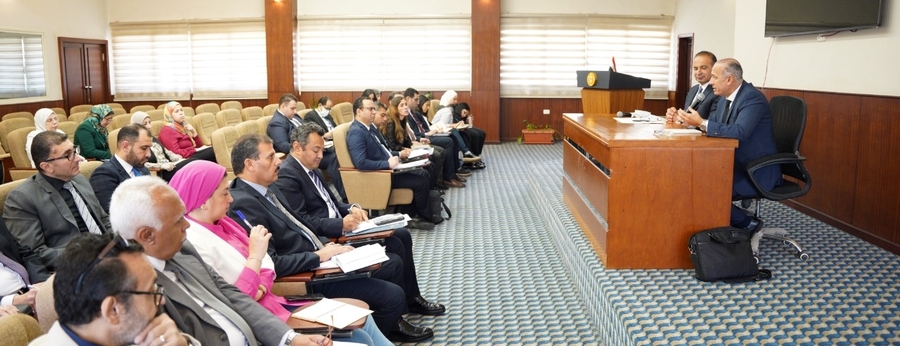Deputy Minister of Planning and Economic Development chairs the meeting of the Ministries Working Group of Cop27

28 May 2022
Dr. Ahmed Kamali, Deputy Minister of Planning and Economic Development chaired today the meeting of the mini-working group of ministries for the Conference of Parties Cop27, to work on scrutinizing the list of available green projects.
The meeting witnessed the participation of Ambassador Wael Abul-Magd, Ambassador of the Arab Republic of Egypt to Brazil, the personal representative of the CoP27 Conference of Parties and head of the Egyptian negotiating delegation, in the presence of Dr. Jamil Helmy, Assistant Minister of Planning and Economic Development, and with the participation of representatives of the Ministries of Foreign Affairs, Transport, Environment, International Cooperation, and Housing, Petroleum, Irrigation and the Ministry of Electricity.
During the meeting, Kamali stressed the importance of the United Nations Conference on Climate Change Cop27, pointing to Egypt's interest in issues related to the environment since the launch of Egypt's Vision 2030, where the environmental dimension was included in the vision.
Kamali added that looking at the green projects in the budget, it was discovered that the percentage of green projects in the state's general budget represents a large percentage, reaching about 15%, with a large variety of sewage, electricity, and transportation projects.
Kamali added that as a result of the state's orientation toward a green economy and an environmental dimension, the volume of those green investments has been doubled to 30%, and it is expected within two years to reach 50%.
Kamali stressed the importance of benefiting from the Cop27 Conference of Parties, explaining that the state's financing needs are increasing every year, in addition to the rise in the volume of public investments.
Kamali stressed that the Egyptian state has made a great leap in all fields, most notably infrastructure and human development during the last three years, which needs funding, adding that the conference can be used to identify projects for which funding can be mobilized.
Kamali explained the importance of identifying specific projects due to the presence of a large number of projects that are classified as green projects.
Kamali directed to identify projects that could be included in the state's general budget.
He further highlighted the aforementioned projects that will be submitted to mobilize funding with the foreign partner, as well as the projects that are submitted through the sovereign fund, adding that it is necessary to have a kind of classification and not focus on one of the areas.
Kamali added that the inclusion of projects is not arbitrary, as there are controls and criteria for the listing process, stressing the importance of a private sector partnership in these projects, as well as the role of Egypt's sovereign fund, which may play an important role in these projects.









